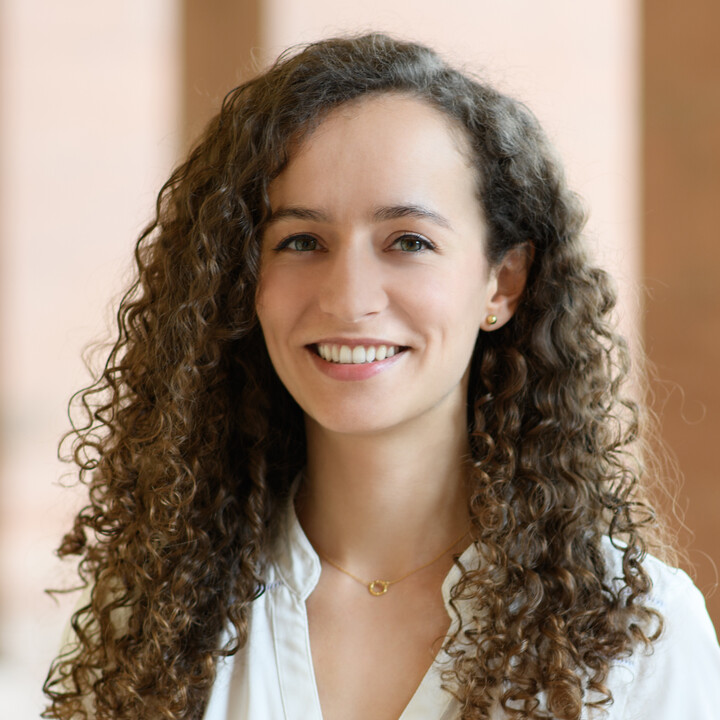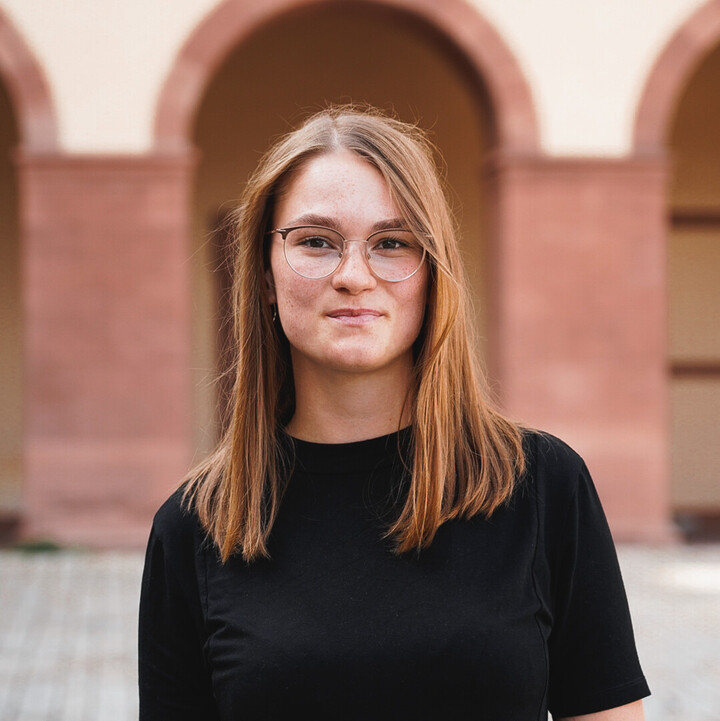What Is the Young Generation Researching?
The University of Mannheim offers a wide range of courses and subjects at its six schools: Business, Economics, Business Informatics and Mathematics, Law, Humanities, and Social Sciences. But which topics are currently being researched? A few scientists who are working on their dissertations at the moment introduce themselves and their insightful work.
Suzanne Bellue (Economics)

Topic/
Why Don't Poor Families Move? A Spatial Equilibrium Analysis of Parental Decisions with Social Learning
What it’s about:
Social segregation can explain why poor families underinvest in children’s education. Since we learn by observing people around us, low-income environments generate pessimism about chances of success, which hinders social mobility across generations.
Nader Hotait (Social Sciences)

Topic/
Hate Begets Hate. Exploring „Islamist“ Speech Online and Its Effect on Radicalization.
What it’s about:
In my thesis, I explore the question how Dissertation gehe ich der Frage nach how widespread radical content is among social media users and what effect its consumption has on political attitudes.
Annika Frank (Humanities)

Topic/
No „nationalist superhero“. Identity and Politics in German Superhero Comics. (working title)
What it’s about:
Superheroes do not only exist in America—since the 1980s, these figures have also appeared in comics in the German language. I examine these narratives with regard to concepts of identity and political discourses.
Felix Rusche (Economics)

Topic/
Broadcasting Change: India‘s Community Radio Policy and Women‘s Empowerment
What it’s about:
I examine the extent to which media can be used to empower women. For this purpose, I analyze 280 radios operated by universities and NGOs in India.
Oliver Rittmann (Social Sciences)

Topic/
Video Analysis in Parliamentary Research: Methodology and Application
What it’s about:
I use artificial intelligence to analyze video recordings of parliamentary debates. For example, I investigate when parliamentarians are attentive in the plenary and when they are not.
Hannah Lilly Straub (Law)

Topic/
Genomic Screening Programs for Newborns
What it’s about:
Genome analyses in the context of newborn screening would open up a great deal of information about the individual. They are consequently associated with numerous medical, but also ethical and legal challenges. I will address the legal problems of introducing genomic newborn screening.
Chris Pflüger (Law)

Topic/
The Corporate Decision to Cooperate with Investigative Authorities
What it’s about:
The thesis examines the duties of board members after discovering violations of the law. Do violations of the law have to be disclosed to investigating authorities or is the decision to cooperate a discretionary decision of the executive board?
Anna-Lena Fischer (Law)

Topic/
Subsidy Fraud in the Event of Violations of Cross-Compliance Requirements—Illustrated Using the Example of Animal Welfare Regulations
What it’s about:
Considering questions of European law, the paper examines whether farmers are liable to prosecution by providing incorrect information about these specifications in subsidy applications if they already know that, for example, the husbandry of their calves does not comply with the specifications.
Louisa van der Does (Humanities)

Topic/
„Die Neunzehnte“. A Street in Red Light. Mannheim's Bordello Alley in the 20th Century
What it’s about:
The Mannheim prostitution district “Lupinenstrasse”, also called „Die Neunzehnte”, can now look back on 120 years of its existence. My intention is to explore its fascinating history.
Patrica Breuer (Business Administration)

Topic/
Essays on Financial and Non-Financial Transparency Regulation
What it’s about:
I examine distributional effects of transparency regulations. My results show that transparency regulations mainly help large companies at the expense of small companies.
Rosa Holtzwart (Business Administration)

Topic/
Antecedents and Consequences of Self-Avatar Design. Three Essays on Beautification in Human-Avatar Interactions
What it’s about:
I investigate how self-avatar appearance can be beautified towards our ideal-self, and how this influences identification with the self-avatar and behaviour using the self-avatar.
Kai Mäckle (Business Administration)

Topic/
Friends with Drugs: The Role of Social Networks in the Opioid Epidemic
What it’s about:
We show that the opioid crisis in the United States spreads through social networks. The results clearly demonstrate that physically non-contagious diseases can be socially infectious.
Johanna Mehltretter (Social Sciences)

Topic/
What Do Racists Google? New Opportunities for Attitudes Research by Combining Google Trends and Survey Data
What it’s about:
What does it say about society what people Google, and how can we use data from Google searches to study attitudes like racism?
Sofia Navarro-Baez (Social Sciences)

Topic/
Cue Learning for Metamemory Judgments
What it’s about:
I investigate how people learn information that help them predict how well they will remember things in the future.
Barbara Kreis (Social Sciences)

Topic/
When Is Hindsight Bias a By-Product of Adaptive Knowledge Updating?
What it’s about:
Looking back, we often think we have always known things. Traditionally, this hindsight bias was considered an unreasonable delusion. However, adaptive knowledge updating processes are actually a fundamental basis for it.
Researched and edited by: Rheia Martiny/
